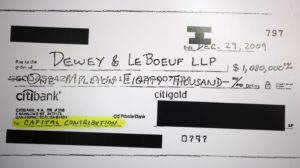The Wall Street Journal reinforces my earlier posts about the threat to innovation posed by premature government intervention into the technology marketplace.
The FTC As a Threat To Tech Innovation


The Wall Street Journal reinforces my earlier posts about the threat to innovation posed by premature government intervention into the technology marketplace.

The European Union has ordered Google to make “sweeping changes” to its business model by extending restrictions being demanded for Web search into the mobile realm. That’s wrong because mobile is fundamentally different for 5 profoundly important reasons.

With the Square-Starbucks joint venture, we are now on the verge of an inflection point for commercial payments. How many more years or decades before currency itself becomes extinct?

When industries are transformed by disruptive new technologies and business models, the law itself can be in for a game-changing, forced makeover.

Comedy Central’s South Park has opened the door for “fair use” copyright defenses to shut down infringement lawsuits before they saddle defendants with discovery expenses or force a settlement for cost reasons.

One year ago, the Wall Street Journal and other business publications reported that the Federal Trade Commission (FTC) had launched an investigation into “Twitter and the way it deals with the companies building applications and services for its platform.” Let’s hope the FTC’s 2011 Twitter investigation is mothballed in 2012.

Dewey & LeBoeuf is the biggest AmLaw 200 firm to collapse, but its not the only one. Here are 10 other law firm failures that made news in their day.

Disruptive innovation is not new and not unique to high-tech. It’s been around for hundreds of years and serves as a key driver of both economic growth and social evolution.

When Google’s proposed acquisition of Motorola Mobility was announced in 2011, the business press focused mainly on the extension of Google’s core business from Internet search into hardware. But from a legal perspective, the treatment given the deal by competition authorities in the United States, the EU and China raises intriguing questions about the scope and objectives of merger policy in emerging technology markets.

The story of the Telephone Consumer Protection Act of 1991 this year is how the Supreme Court can sometimes see a legal issue so clearly despite confusion and conflicts among the lower federal courts.